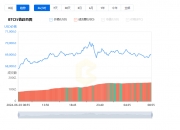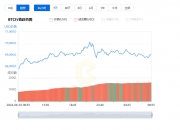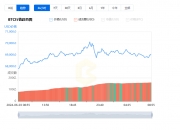电子货币与数字货币是不一样的,可能大家对电子货币是比较熟悉的,因为我们生活中会用得比较多,比如银行卡、电子现金。那么,电子货币与数字货币的区别是什么呢?下面将由找法网小编为您详细介绍相关内容,希望对您有所帮助。
Electronics are not the same as digital currencies, and perhaps you are familiar with them, because we use them more in our lives, such as bank cards and electronic cash. So what is the difference between electronics and digital money?
1、以电子计算机技术为依托,进行储存,支付和流通;
1. Storage, payment and circulation on the basis of computer technology;
2、可广泛应用于生产、交换、分配和消费领域;
2. A wide range of applications in the areas of production, exchange, distribution and consumption;
3、集金融储蓄、信贷和非现金结算等多种功能为一体;
3. Combining the multiple functions of pooling financial savings, credit and non-cash settlements;
4、电子货币具有使用简便、安全、迅速、可靠的特征;
4. Electronic currencies have easy-to-use, safe, rapid and reliable features;
5、现阶段电子货币的使用通常以银行卡(磁卡、智能卡)为媒体。
At this stage, the use of electronic currency is usually made by means of bank cards (magnets, smart cards).

1、交易成本低
1. Low transaction costs
与传统的银行转账、汇款等方式相比,数字货币交易不需要向第三方支付费用,其交易成本更低,特别是相较于向支付服务供应商提供高额手续费的跨境支付。
Compared to traditional bank transfers, remittances and so on, digital currency transactions do not require payment of fees to third parties and their transaction costs are lower, especially as compared to the provision of high cross-border payments to service providers.
2、交易速度快
2. Fast pace of transactions
数字货币所采用的区块链技术具有去中心化的特点,不需要任何类似清算中心的中心化机构来处理数据,交易处理速度更快捷。
The block chain technology used for digital currencies is decentralized and does not require any centralised agency similar to a clearing centre to process data and transactions more quickly.
3、高度匿名性
3. High level of anonymity
除了实物形式的货币能够实现无中介参与的点对点交易外,数字货币相比于其它电子支付方式的优势之一就在于支持远程的点对点支付,它不需要任何可信的第三方作为中介,交易双方可以 在完全陌生的情况下完成交易而无需彼此信任,因此具有更高的匿名性,能够保护交易者的隐私,但同时也给网络犯罪创造了便利,容易被洗钱和其它犯罪活动等所利用。
In addition to the fact that currencies in physical form are able to achieve point-to-point transactions without intermediary participation, one of the advantages of electronic payment of is that it supports remote point-to-point payments, that it does not require any credible third party to act as an intermediary, that the parties to the transaction can complete the transaction without trusting each other in a completely unfamiliar situation and thus be more anonymous and can protect the privacy of the traders, but also that it provides to facilitate money-laundering and other criminal activities.
数字货币严格意义上来讲就是数字化人民币,它是一种法定加密的数字货币。数字货币有三个特点:去中心化、匿名性强、支付快捷。和传统的货币不同的是,数字货币的去中心化能力比较强,主要是因为数字货币的发行和运行不依赖政府、企业、央行等组织机构的支持,而是通过计算机技术来得以实现,从而在理论上确保了任何人都无法操控数字货币的总量或者认为制造通货膨胀。另外一个特点就是匿名性强,数字货币在交易的购买初期就可以实现匿名,用户提供信用卡或资金就可以购买到数字货币,并在交易过程中涉及到个人信息的环节较少,使得整个交易无法辨别个人身份。最后一个特点是支付较为方便快捷,因为数字货币的交易是不受时间和空间的限制的,并且能够方便快捷且低成本实现境内外的资金交易活动。
Digital money is, strictly speaking, a digitized renminbi, which is a legally encrypted digital currency. Digital currency is characterized by three characteristics: decentralization, anonymity, and speed of payment. Unlike traditional currencies, digital money is more centralized, mainly because its distribution and operation are not dependent on the support of organizations such as governments, businesses, central banks, etc.
而电子货币指的是用一定的金额或现金存款在发行处兑换并且得到相同金额的电子数据,通过某些使用电子化的方式将该数据转移到他人账户中,从而清偿债务的行为。严格意义上将是消费者向电子货币的发行者支付传统货币,而发行者将与传统货币等同价值的数据,以电子的形式储存于消费者持有的电子设备中。简单来说,就是我们那现金去银行存钱,那么银行“我”的账户中就多了和我存的现金一样价值的金额数字,那么这个数字就是电子货币。像目前常见的储值卡、银行卡、电子支票、电子现金等都是电子货币代表。
E-money, on the other hand, refers to the payment of debts by using an amount or cash deposit to be exchanged at the issuing office and to receive electronic data for the same amount, which is transferred to another person's account by some electronic means. The consumer will pay the issuer of the e-money in the strict sense of the term, and the issuer will store the data in electronic form with the equivalent value of the traditional currency in electronic form in the electronic equipment held by the consumer. Simply put, that is, our cash goes to the bank, so that the bank's “me” account has a larger amount of money of the same value as my cash, which is e-money. Like the current common stock card, bank card, , e-cash, etc.
发行数字货币会使我国的经济有一定的可编程性,使金融调控会更有方向,而数字货币实行的全网分布记账模式,将能提高我国的经济信用度。
The issuance of digital currency will allow the country's economy to be programmed and financial regulation to be more oriented, while the Internet-wide system of accounting for digital currency will enhance the country's economic credibility.
以上就是找法网小编为您整理的“电子货币与数字货币的区别是什么”的相关内容,我们可以知道,电子货币与数字货币的区别主要是它们的形式是不一样的,也各有各自的特点和功能。若您还遇到其它问题,欢迎上找法网的法律平台,咨询专业的律师。
If you have other problems, you are welcome to visit the legal platform of the Internet to consult professional lawyers.
注册有任何问题请添加 微信:MVIP619 拉你进入群

打开微信扫一扫
添加客服
进入交流群


















发表评论